Imagine a morning where the first rays of the sun gild ancient stones and olive groves, and the air is filled with the aroma of blooming gardens and freshly brewed coffee. This is Cyprus—a place where every meal, starting with breakfast, becomes a small celebration of life, unhurried and rich in flavor. Here, in the land of Aphrodite, breakfast is not merely a way to satisfy hunger, but a gateway to understanding the island’s soul, its traditions, and its renowned ability to savor every moment.
Awakening on the island of Aphrodite: the magic of a Cypriot morning
The beginning of the day in Cyprus immerses you in a special atmosphere where time seems to slow down. Morning coolness, especially noticeable in the off-season, gradually gives way to the gentle warmth of the rising sun, inviting you to enjoy the moment. This is where the philosophy of "siga-siga" (σιγά-σιγά)—taking it slow, appreciating each moment, and avoiding haste—comes to life. It’s not laziness, but a conscious choice for quality of life that sets the tone for the day and breakfast alike.
To wake up on the island is to instantly dive into a sensory experience. The air might carry the scent of jasmine, fresh herbs, pine, or just-brewed coffee—sometimes even the faint smoke from ovens baking bread or other foods. All of this, combined with the coolness of morning, creates a special mood and subtly suggests: it’s time to taste the local delights.

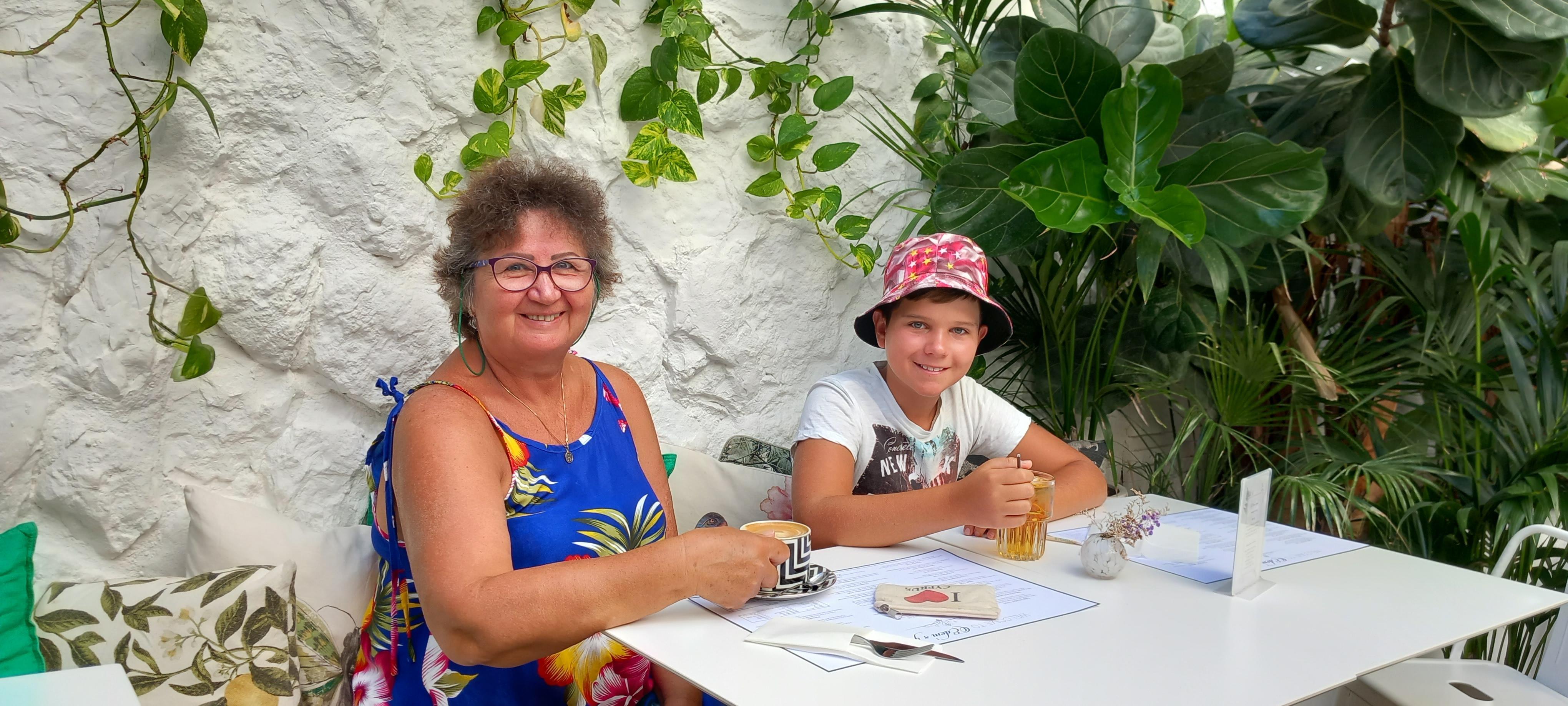
A kaleidoscope of flavors: what's behind a Cypriot breakfast?
A Cypriot breakfast is more than a meal—it’s a philosophy. It showcases generosity and a love for fresh, natural foods. You’ll find a curated assortment of local delicacies that reflect the richness of the Mediterranean diet in its most authentic form, emphasizing whole ingredients, seasonality, and the bounty of local land.
Center Stage: Halloumi and Golden Olives
Halloumi (χαλλούμι) is undeniably the star of the Cypriot table. This unique cheese—typically made from a mix of goat’s and sheep’s milk with mint—has a firm, layered texture and a mildly salty, minty taste.
Its magic lies in not melting when grilled, forming a golden crust while staying soft inside. Often served grilled for breakfast, it’s a national treasure. Cypriots love it with tomatoes or juicy watermelon in summer, or even drizzled with local honey.
Equally important are olives (ελιές), cultivated in Cyprus since ancient times. A highlight are "tsakistes" (τσακιστές)—large green olives marinated with garlic, lemon, coriander, and olive oil. Their bold, refreshing flavor complements any breakfast dish. Warm baked black olives also make frequent appearances, bringing aroma and tradition to the table.
Fragrant Bread from the Oven: From Koulouri to Rustic Pita
Fresh bread is the soul of a Cypriot breakfast. Not just a side, it’s a cultural symbol made with local grains and spices using traditional baking methods. Koulouri (κουλούρι) are sesame-coated rolls or bagels, often flavored with cumin or anise.
Then there’s "prozymi" (προζύμι)—sourdough village bread, sometimes spiced with mastic and cinnamon for a subtly sweet, resinous aroma. Pita (πίτα), a flat round bread with a pocket, is also popular and served with cheese, olives, or simply torn and dipped in honey or sauces.
Savory Delights: Lountza, Loukaniko, and Aromatic Pastourma
Meat delicacies bring richness to the breakfast table. Lountza krasati (λούντζα κρασάτη) is pork loin marinated in red wine and spices, then smoked or air-dried. Loukaniko (λουκάνικο) are spicy sausages flavored with wine, coriander, pepper, and cumin.
Often fried with eggs and halloumi, they make a hearty morning meal. Pastourma (παστουρμάς), in contrast, is air-dried beef rich in spices, similar to basturma, and also served grilled with eggs and cheese.
Sweet Pleasures and Freshness: Creamy Anari, Juicy Fruits, Eggs, and More
Cyprus breakfast balances sweet and savory perfectly. Anari (αναρή)—a soft, unsalted whey cheese similar to ricotta—is often topped with local honey or carob syrup. Local jams made from figs, grapes, or citrus also grace the table, along with fresh seasonal fruits like cucumbers, tomatoes (fresh or grilled), grapes, oranges, tangerines, figs, and dates.
Eggs appear in many forms, often with dried oregano or in the classic "Avga me Halloumi" (αβγά με χαλλούμι)—eggs fried with cheese, loukaniko, or pastourma. In villages or cooler months, the breakfast may include "trahanas" (τραχανάς)—a hearty soup of cracked wheat and sour goat milk or yogurt. Flatbreads like "kattimeri" (καττιμέρι), drizzled with honey and cinnamon, are also popular.
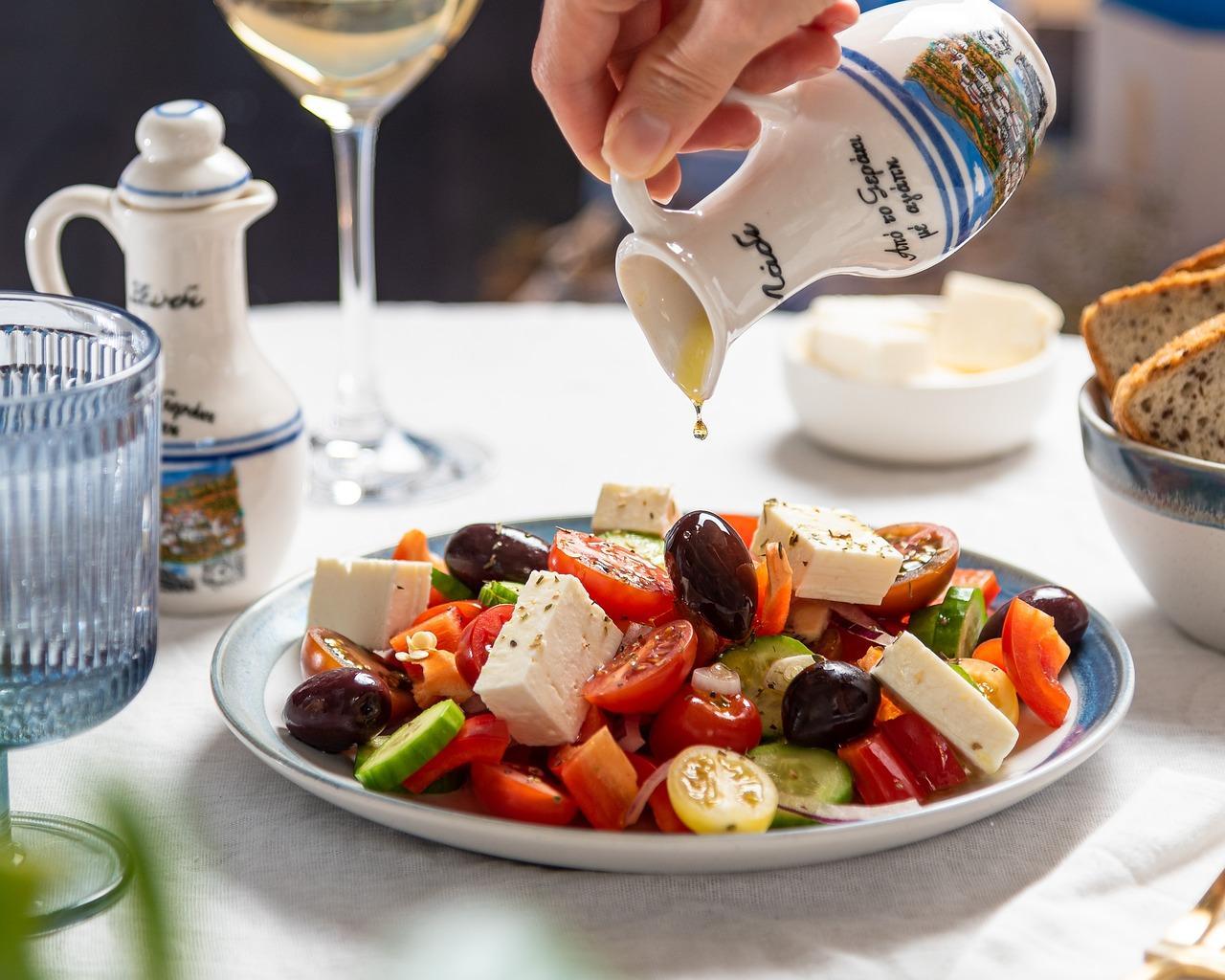
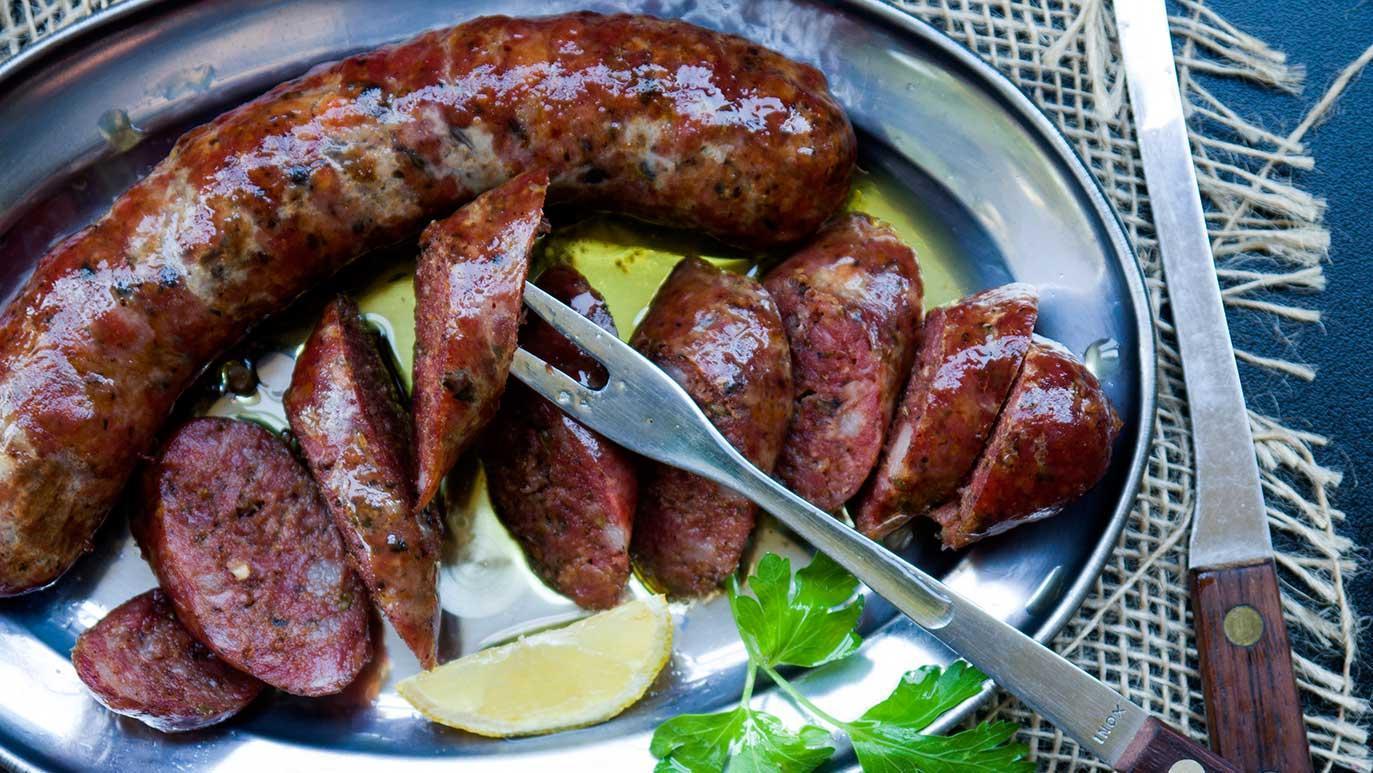
Cypriot coffee: a sip of tradition and heartfelt connection
Cypriot coffee (κυπριακός καφές) is more than just a drink—it's a ritual and an essential part of the island’s culture and daily life. It serves as a microcosm of the “siga-siga” (σιγά-σιγά) philosophy, which means “slowly, slowly.” Its preparation demands care and patience, while its enjoyment requires a leisurely pace—making it the exact opposite of modern “coffee on the go.”
The coffee is made from extremely fine, almost powder-like grounds, brewed in a special long-handled copper or brass pot called a mbriki (μπρίκι). It is mixed with cold water and sugar (optional), then slowly heated over a flame or hot sand. The key element is the formation of a thick foam known as kaimaki (καϊμάκι) on the surface—this froth is considered the hallmark of a properly brewed coffee.
Cypriot coffee is served in small cups, always accompanied by a glass of cold water. The water isn’t just to cleanse the palate afterward but to prepare the taste buds before each sip, allowing the full depth of flavor and aroma to be appreciated.
This isn’t just a nod to tradition—it’s a practical and respectful gesture that enhances the drinking experience and honors both the beverage and the guest. Milk is never added to Cypriot coffee; its absence is a sign of authenticity and dedication to the pure, unadulterated flavor that has remained unchanged for centuries.
When ordering, it’s important to specify your preferred level of sweetness: Sketo (σκέτο) — no sugar, Metrio (μέτριο) — medium sweet (usually one teaspoon of sugar), Glyko (γλυκό) — sweet (two teaspoons of sugar)
For Cypriots, a cup of coffee is a reason to pause, have a slow conversation, share news, or spend quality time with friends or family. Local coffeehouses—known as kafeneio (καφενείο)—still function as vital social hubs, especially in villages, where men often spend hours chatting over coffee.

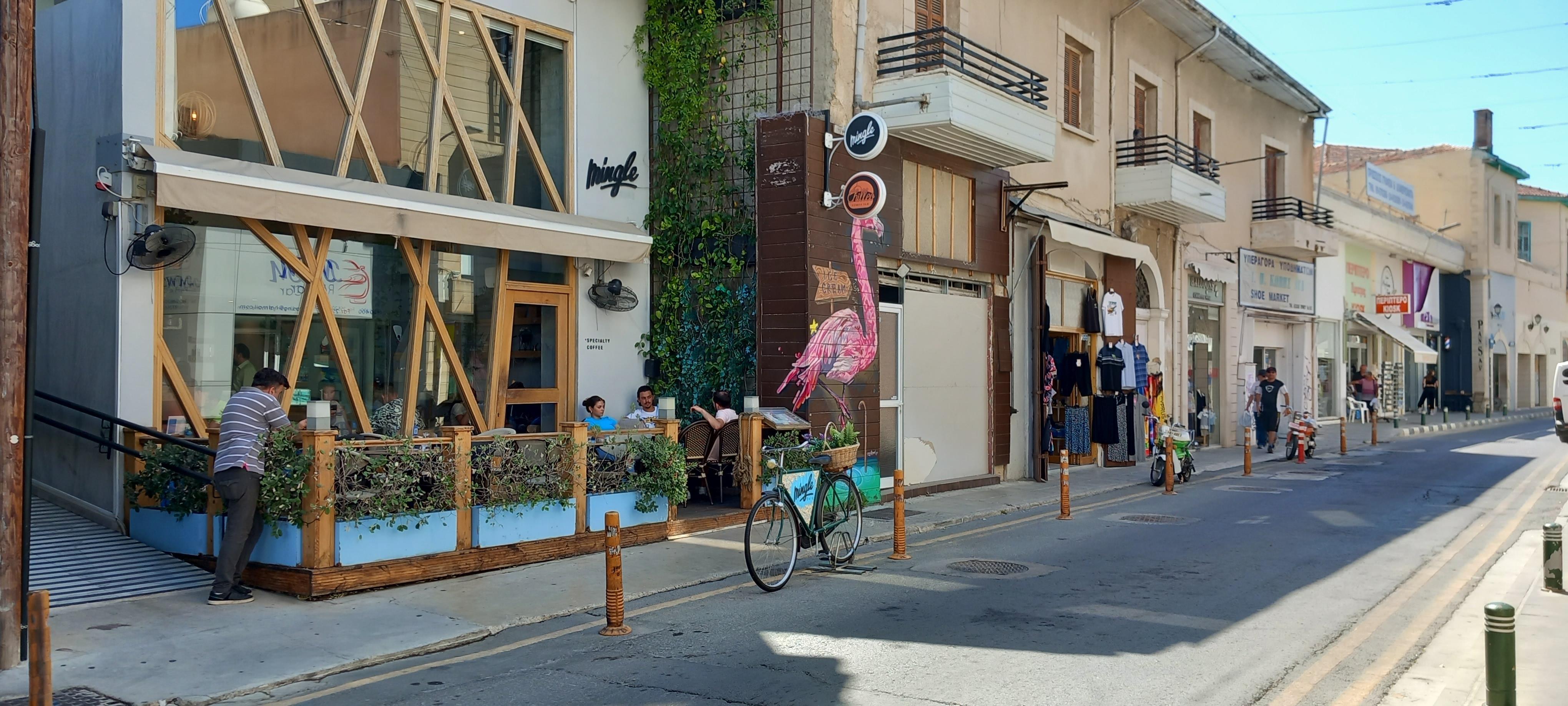
A feast on a plate: Easter breakfast and its stars
Easter (Πάσχα), lovingly called Lambri (Λαμπρή) in Cyprus—meaning “bright” or “radiant”—is the most important and beloved holiday on the island. It's a time when religious traditions and family values intertwine especially deeply. The Easter table, often set from early morning, is marked by abundance and symbolism. Here, food is more than sustenance—it serves as a powerful symbol of faith, renewal, and family unity. The spirit of Easter lingers throughout the spring, as do its cherished delicacies.
Flaounes — The Fragrance of Easter
Flaounes (φλαούνες) are traditional Easter pastries. Much like the kulich is essential for Orthodox Slavs, flaounes are an inseparable part of Cypriot Easter. These fragrant pies, typically triangular or square, are either savory or slightly sweet, filled with a rich mixture of local cheeses such as halloumi, anari, and pafitiko (παφίτικο). For added aroma, the filling includes fresh mint, sometimes raisins, and a blend of spices like mahlepi (μαχλέπι – wild cherry seed) and mastic (μαστίχα). These give the pastries a distinctive Eastern Mediterranean flair.
The tops are generously sprinkled with sesame seeds. Traditionally, home cooks prepare the filling (called fouko, φουκό) at least a day in advance, and bake the flaounes on Holy Thursday. They are eaten on Easter Sunday and throughout the following week. It's believed that flaounes help the body gently transition from strict Lenten fasting to regular food. For many Cypriots—especially those living abroad—the smell of freshly baked flaounes evokes memories of home, childhood, and the warmth of family.
Tsoureki — The Sweet Symbol of the Holiday
Another traditional Easter treat is tsoureki (τσουρέκι)—a soft, aromatic sweet bread braided into a plait. It closely resembles the Greek Easter bread from which it originated. In terms of ingredients and preparation, tsoureki is similar to kulich, but it differs in shape and the inclusion of signature spices.
The hallmark of Cypriot (and Greek) tsoureki is the use of mahlepi and mastic, which give it a unique, unmistakable aroma. Like flaounes, tsoureki is baked in the days leading up to Easter and graces every festive table.
In addition to these baked goods, the Easter table always features red-dyed eggs, symbolizing the Blood of Christ and rebirth. Lamb dishes, such as souvla (σούβλα)—large skewers of roasted lamb—are also traditional, though typically served at the Easter lunch rather than breakfast. Another common dish is avgolemono (αυγολέμονο), a chicken soup with egg and lemon juice.
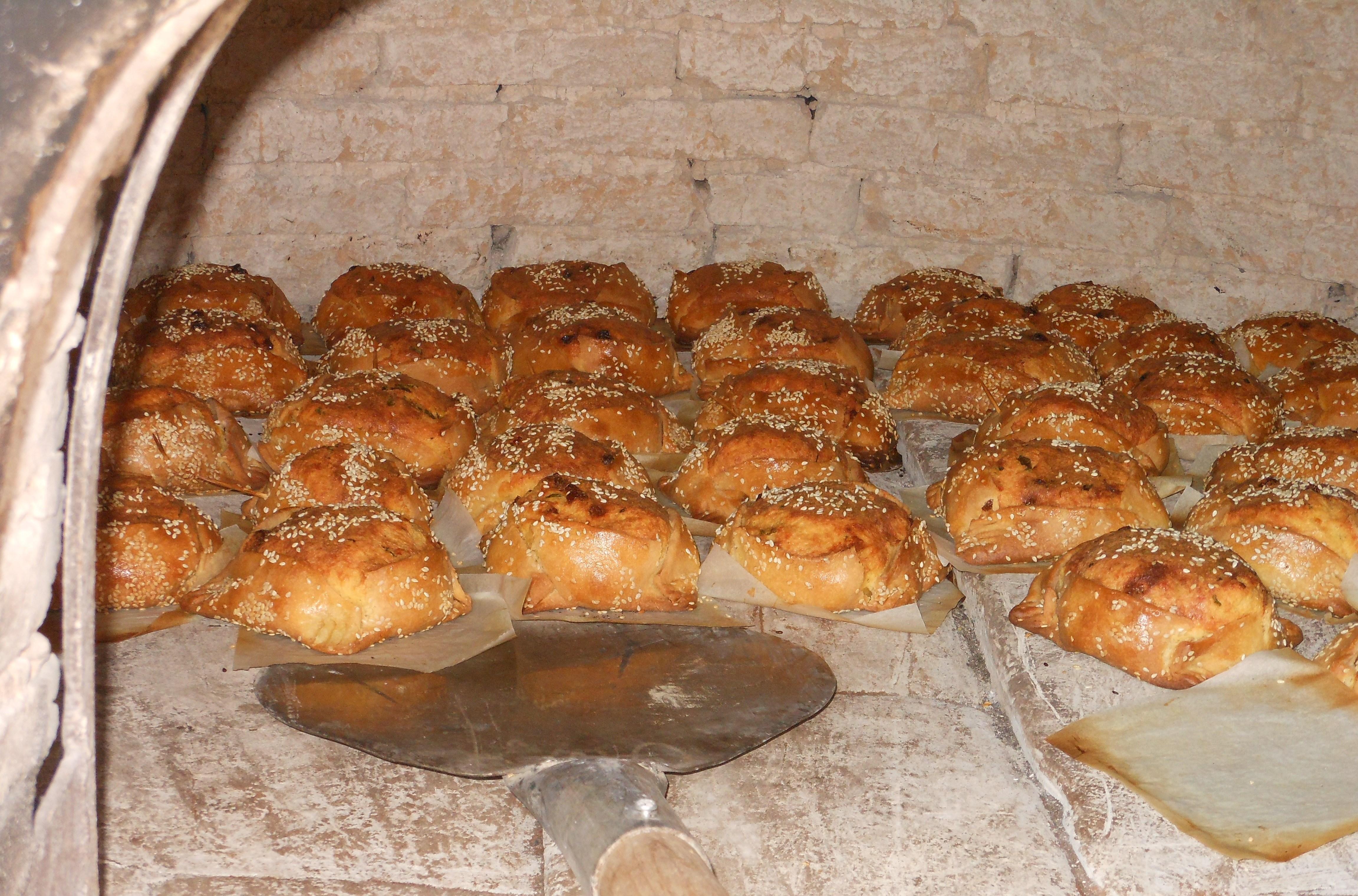
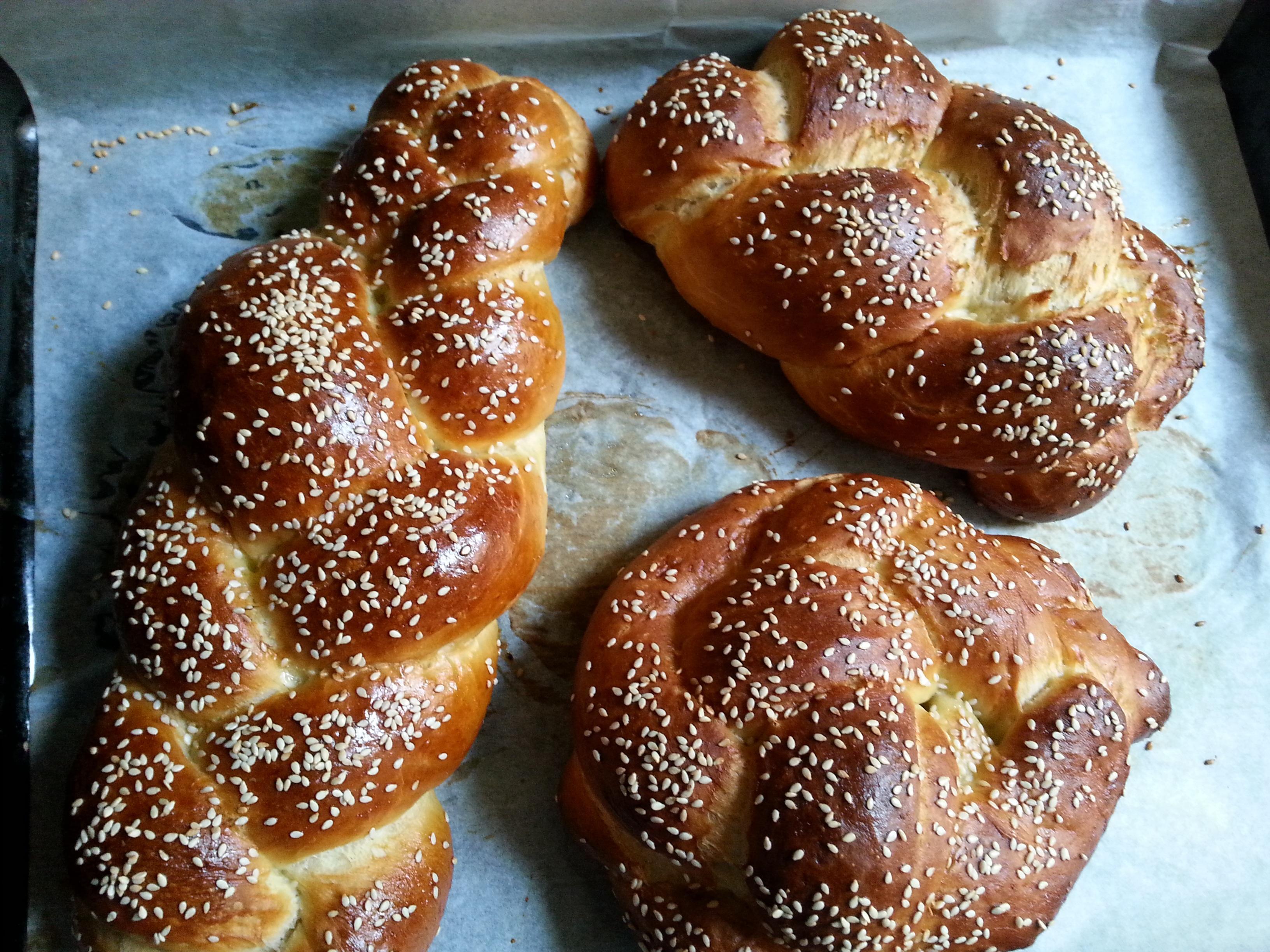
Cypriot Bougatsa: a tender embrace of custard
When speaking of Cypriot pastries, one cannot overlook bougatsa (μπουγάτσα). It's important to note that, unlike in some parts of Greece—where bougatsa can be filled with cheese or meat—on Cyprus, it is predominantly known as a sweet pie with delicate custard filling.
Bougatsa is a delightful dessert made from paper-thin sheets of phyllo dough (sometimes a special dough is used), wrapped around a generous portion of fragrant custard. Once baked, the pie is typically dusted with powdered sugar and ground cinnamon, adding extra charm and flavor. You can find bougatsa in many bakeries and cafés across the island. It’s a beloved treat for both locals and tourists alike.
It is believed that the recipe for bougatsa was brought to Cyprus and Greece by refugees from Asia Minor in the early 20th century. The name itself comes from the Turkish word poğaça, meaning "pie" or "pastry." The popularity of the sweet, creamy version of bougatsa in Cyprus likely reflects local tastes leaning toward dessert-like variations—perhaps making it the perfect companion to a strong cup of Cypriot coffee.
The story of bougatsa’s origins beautifully illustrates the cultural intermingling of the Eastern Mediterranean, where culinary traditions travel, evolve, and enrich the cuisines of different peoples.

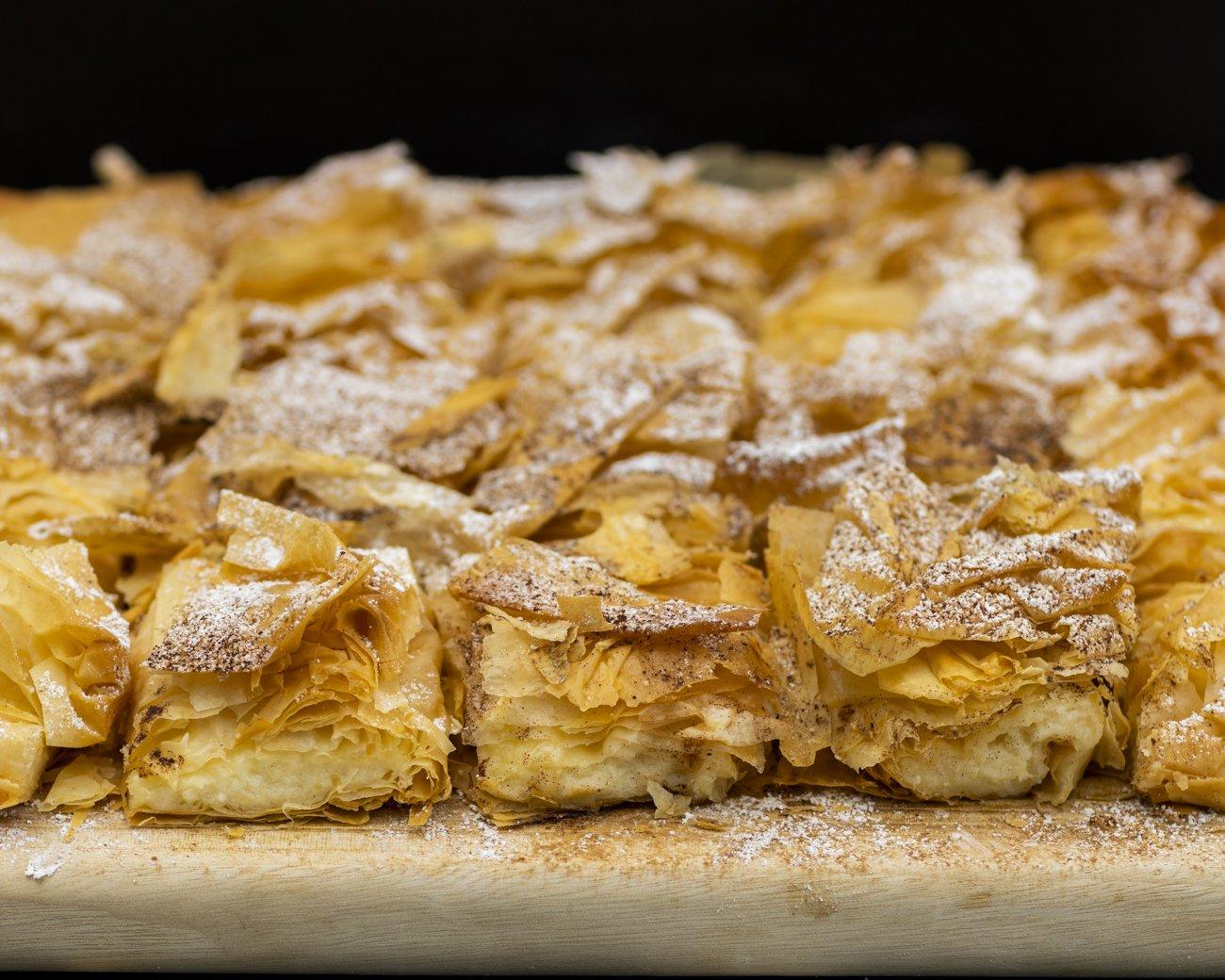
More than just food: breakfast as a mirror of the Cypriot soul
A Cypriot breakfast is much more than a morning meal—it is a reflection of the national character, cultural traditions, and the island’s life philosophy. Above all, it embodies the famous Cypriot hospitality, known as “filoxenia” (φιλοξενία). If you're invited to share breakfast in a Cypriot home, know that it's a sincere gesture—a genuine desire to offer you the very best. Warm and generous hosts will proudly serve you the freshest and most delicious foods.
In Cyprus, food is treated with deep respect. The process of preparing a meal is not rushed or taken lightly—it’s a meaningful act, and breakfast becomes a form of cultural expression and generosity rather than just a practical routine.
Breakfast is also a time for family and connection. Unlike in many cultures where mornings are hectic and rushed, Cypriots cherish the opportunity to sit down with loved ones, discuss the day ahead, or simply enjoy each other’s company. Family holds a central place in Cypriot life.
Every dish in a Cypriot breakfast reflects a connection to the land and tradition. The use of fresh, seasonal, local ingredients isn't a passing eco-trend—it’s a way of life that has evolved over centuries. Many recipes are passed down through generations, preserving the authentic taste and spirit of the island. Here, cooking is treated with care and reverence—it tolerates no haste or neglect.
To help preserve and promote this culinary heritage, Cyprus launched the “Cyprus Breakfast” program. Hotels and restaurants participating in this initiative commit to serving authentic breakfasts made with high-quality local products. The "Cyprus Breakfast, Kalimera" logo is a seal of authenticity, ensuring guests experience the true taste of Cyprus. This isn’t just a marketing move—it’s a thoughtful effort to preserve cultural identity through gastronomy, especially in a globally influenced tourism industry.
And of course, a Cypriot breakfast is yet another expression of the “siga-siga” (σιγά-σιγά) philosophy—slow, mindful enjoyment of good food, lovingly prepared, shared in good company. What better way to capture the art of living in the moment and appreciating life’s simple pleasures?
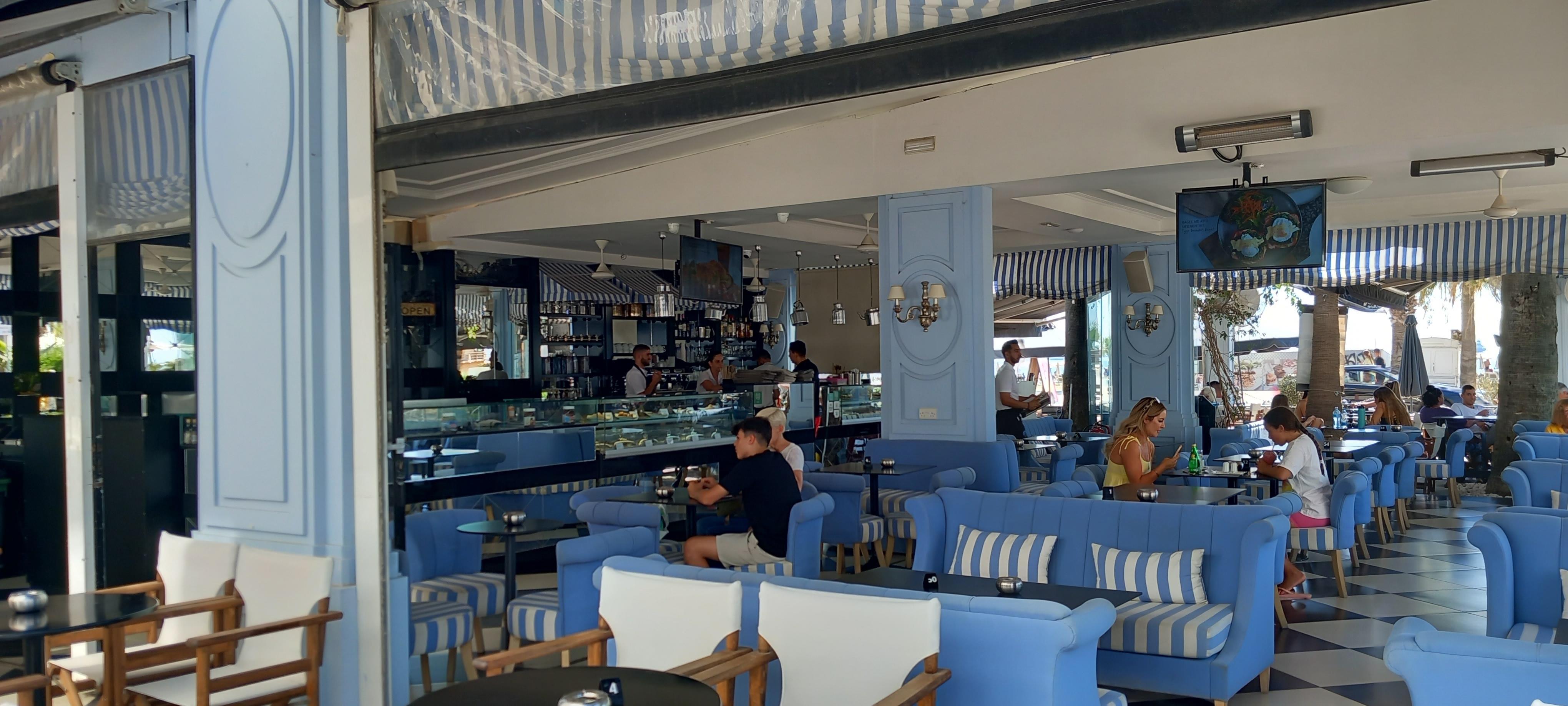

Taste Cyprus: where to find a real breakfast
To truly experience the magic of a Cypriot morning and enjoy an authentic breakfast, it’s worth following a few simple tips. Searching for a “real” Cypriot breakfast can become an exciting adventure—one that allows you to dive deeper into local life and go beyond the typical tourist routes.
First and foremost, look for hotels and restaurants that participate in the Cyprus Breakfast program—they’re easy to identify by the official logo. This ensures that you’ll be offered dishes made from fresh, local ingredients prepared using traditional recipes.
Be sure to visit local bakeries—called fournos (φούρνος). These are the best places to buy freshly baked koulouri bread, and during the Easter season, aromatic flaounes straight from the oven. Bakeries also often sell tahinopitta (ταχινόπιτα)—a sweet pie made with tahini paste and carob syrup, especially popular during fasting periods—and kolokoti (κολοκοτή), pumpkin and bulgur-filled pastries.
Visit traditional coffee shops as well. There, you can enjoy a cup of true Cypriot coffee and soak in the unique, relaxed atmosphere. Some also offer simple snacks that make for a light breakfast. The most authentic experiences are often found in villages, where you’re more likely to taste home-style dishes—and, if you’re lucky, experience legendary Cypriot hospitality with a personal breakfast invitation from a local. Some village taverns also serve traditional breakfasts or brunches.
Even in popular tourist areas, you can find places that serve authentic Cypriot breakfasts—if you know what to look for. Don’t hesitate to ask locals for recommendations—they’re usually happy to share their favorite spots.
Be open to new flavor combinations—try halloumi with watermelon, or soft anari cheese drizzled with carob syrup. And above all, take your time to enjoy your food and the atmosphere—slowly and mindfully, in the true Cypriot spirit of siga-siga. A tip from locals, especially useful during the hot season: have a light breakfast, focusing on fresh vegetables and fruits. It's not just practical, but also a natural expression of the Mediterranean diet, which is deeply rooted in Cypriot culture and lifestyle.
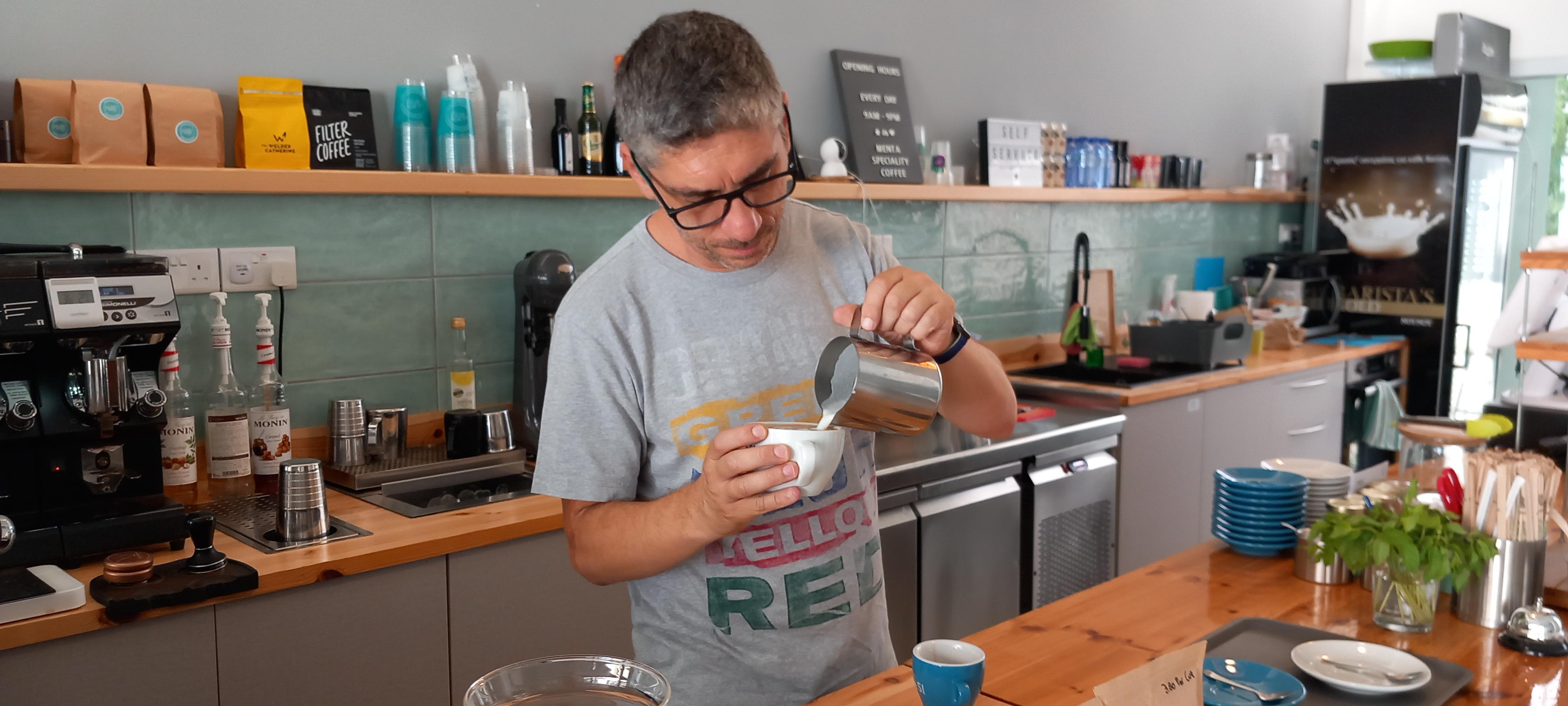

The taste of Cyprus on the tip of your tongue
A Cypriot breakfast is not just a list of dishes—it’s a cultural phenomenon that reflects the very soul of the island. It’s about generosity and simplicity, the freshness of ingredients nurtured by the gentle Mediterranean sun, and the warmth of human connection.
From the salty taste of halloumi and olives, the aroma of freshly baked bread, and the spice of traditional meats, to the sweetness of local honey, juicy fruits, and the ritual of slow coffee drinking—every element of breakfast tells a story. It invites you to touch centuries-old traditions and immerse yourself in Cyprus’s unique atmosphere.
Allow yourself this culinary journey. You'll discover yet another side of this remarkable island—its flavor, one that will linger in your memory long after the meal is over.
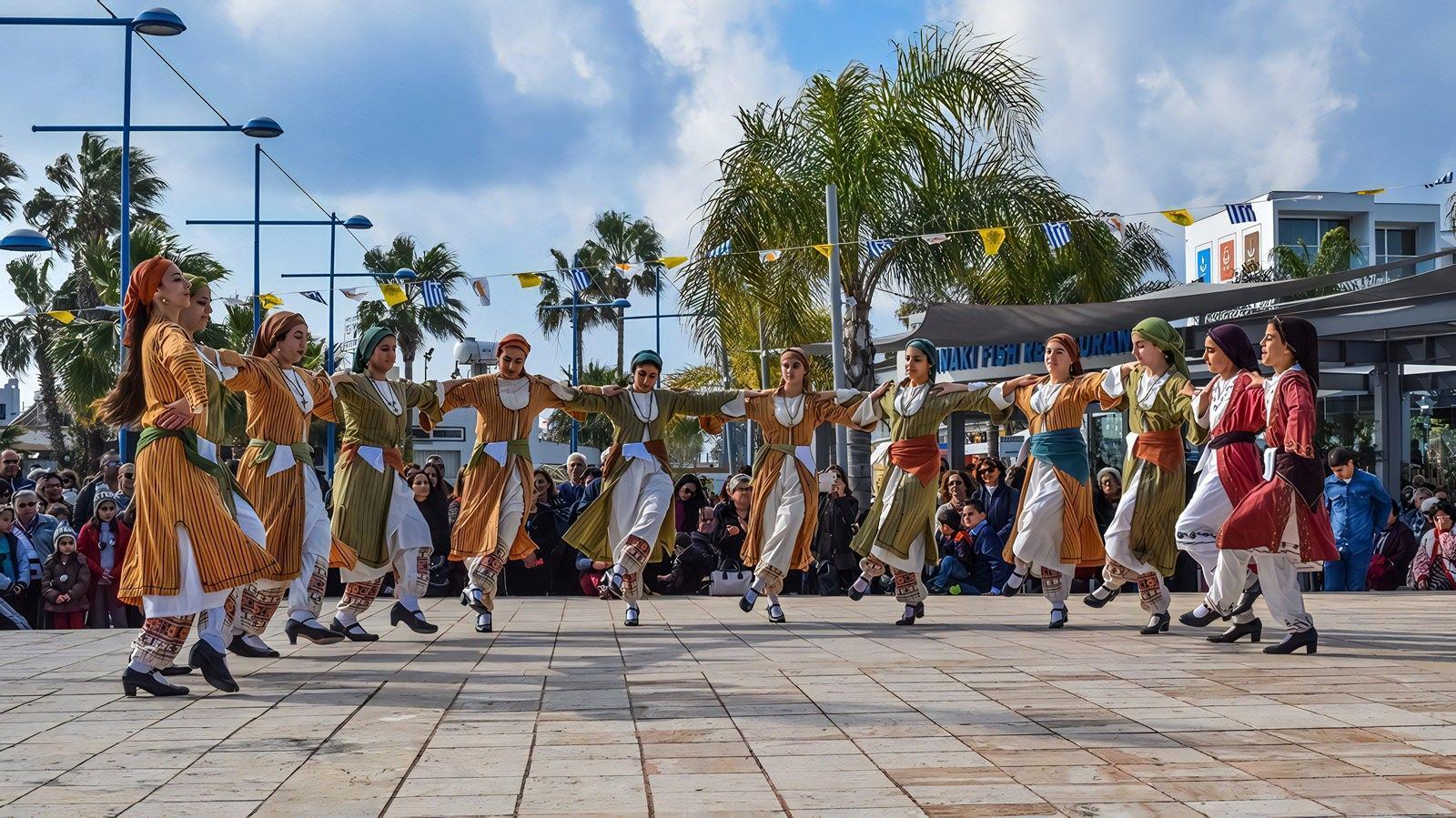
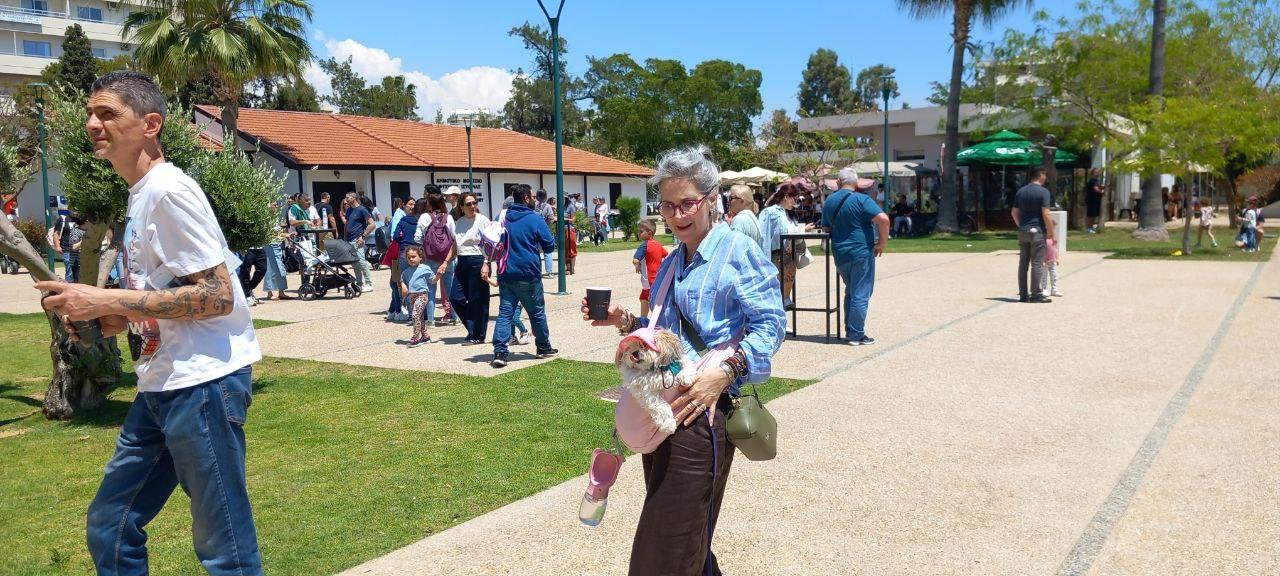
Read also:

